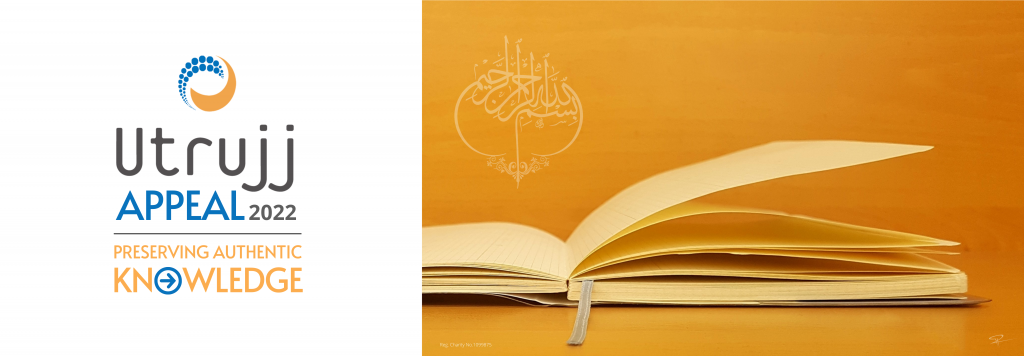How does Allah reward the sick and why should we make the most of our health

Uqbah bin ‘Amir said that the Prophet (peace be on him) said:
Each day, every deed [of a servant of God] has to be recorded and sealed.
When a believer becomes ill, the angels say to God, ‘Oh, our Lord! You’ve confined so and so servant of yours.’
The Lord, the Almighty and Glorious replied, ‘Record and seal for the servant the same deeds that the servant does when the servant is not ill, until the servant recovers from his illness or dies.’ (Musnad Ahmad)
Abu Musa narrated that he heard the Prophet (ﷺ) say many times :
When a servant of Allah is accustomed to do a good work, then becomes ill or goes on journey, what he was accustomed to do when he was well and staying at home will be recorded for him. (Abu Dawoud)
Illness causes good deeds to stop
When a person falls ill or gets dementia, who used to do good deeds, the angels observe to Allah Almighty that the sick person can no longer do them. Perhaps he used to go to the mosque regularly, give charity, give lectures, run his business or help others, but because of the illness that Allah Almighty is testing him with, his good deeds have stopped.
The compassion of the angels
The angels feel compassionate towards to this good person, whose good deeds they enjoyed recording. If it was not for his illness, he would have carried on doing them.
Allah’s mercy
Allah Almighty out of His mercy, fairness and justice, will reply that they can continue to record the same good deeds as the sick person used to do when he was healthy, until he either recovers or dies.
This is very good news for those who are ill and used to do good deeds. Never think that Allah Almighty treats you unjustly. If He afflicts you, He always compensates you and gives you extra reward.
The recording of deeds
Every day, your account is closed at specific times, as we know from many narrations the angels change shifts at Fajr and Asr time. Just before maghrib, your deeds are sealed in your account.
Abu Hurayrah narrated that Allah’s Messenger (ﷺ) said:
Angels come to you in succession by night and day and all of them get together at the time of the Fajr and `Asr prayers. Those who have passed the night with you (or stayed with you) ascend (to the Heaven) and Allah asks them, though He knows everything about you, well, “In what state did you leave my slaves?”
The angels reply: “When we left them they were praying and when we reached them, they were praying.” (Bukhari and Muslim)
A person’s goodness continues to be recorded in travel and sickness
There are many similar narrations, such as the Prophet (peace be on him) narrated:
When the servant is ill or travelling, he will get the same reward as he would have got for the good deeds when he was home or healthy. (Bukhari)
This means that if a person is always engaged in goodness, the angels continue recording goodness even when the person is unable to do them.
The best deeds are recorded
Allah out of His generosity, does not credit you with the minimum or even the average of the deeds you did when you were well, but awards you the maximum and the best of the deeds you used to do.
If someone used to do goodness between 50-70%, the angels will write down 70% for him:
When a servant is ill, the angels are commanded to write the best of his good deeds, which he used to do before illness or travelling. (Musanf Ibn Abi Shaybah and Mu’jam Al-Tabarani Al-Awsat)
Good deeds continue to be recorded until the situation alters or ends
If the sick person used to recite a chapter of Quran every day, or visit the ill in hospital or be good to neighbours, friends and relatives, and suddenly he can’t do anything, Allah Almighty tells the angels to keep recording the best of his deeds until he recovers or dies.
Utilise the gift of time
This hadith makes us reflect on our own situation….
What are our regular deeds?
The question that comes to us when we hear this hadith is how do we utilise our time?
We have to take advantage of the gift of time and health that we have been blessed with. We need to maximise the good in our day and in our life.
The hadith is telling us that your days will not always be the same. Your health will not always be the same. Your energy, strength and influence will not always be the same.
When you have everything in place, and functioning properly, i.e. your body, status and wealth, be grateful to Allah Almighty and utilise your blessings in pleasing Him.
You never know when you might become ill, or when you will travel or when things might go wrong.
Ibn Abbas reported: The Messenger of Allah (peace be upon him) said:
Take advantage of five before five:
Your youth before your old age
Your health before your illness
Your richness before your poverty
Your free time before your work
Your life before your death. (Shu’ab al-Imān)
Save up for a rainy day
If you saved up in your account for a rainy day, then you have done well. If you are just living for the moment and have not planned for the rainy day, and you have forgotten about akhirah or the possibility of your fortunes changing, you will have very little in your account.
Be careful to control the actions of your day
The one who is busy in goodness is in a good position when the status quo is altered, as he continues to earn reward. As we have seen from the corona virus, we do not know, some people might die from it, and some might not. We ask Allah Almighty to give relief to all those who are affected and save us from this virus and all other diseases. Ameen.
Plan the deeds you want to be in your account
When the Prophet (peace be on him) was asked why he fasted on Monday and Thursday, he said it was because he was born on Monday and he wanted siyam (fasting) to be included in his deeds of that day. He was fully aware of what he was putting in his account.
Similarly, we should make a list – not one to overburden us, but have a few items which we want to be in our list for the day.
Diversify your portfolio
Of course, you should have salah on your list, but add to it sunnah prayers, the recitation of Quran, siyam every now and then, visiting a sick person, connecting blood ties, voluntary work.
Make a list for the week: Monday I will do this.. Tuesday I will do that…
Usamah ibn Zayd narrated:
The Prophet of Allah (peace be on him) used to fast on Monday and Thursday. When he was asked about it, he said: The deeds of the servants (of Allah) are presented (to Allah) on Monday and Thursday. (Abu Dawoud)
Diversify your deeds
Have diversity in your deeds. It is not good, as we have in investments, to rely on only one commodity to trade in. Your portfolio should be mixed. Don’t put all your eggs in one basket.
It is in our nature, to get bored, so switch between your good acts, and remember that even listening to others who are suffering, is an act of goodness, as it unburdens them. Anything which will reduce the suffering of someone is good.
Within your capacity, do extra.
Think outside the box
We are busy in our homes and at work, but we can still think outside our main concerns.
There are people around us who might just need a word of encouragement or who could benefit from a half hour training session from you. They might be dying to learn from some expertise which you are keeping to yourself.
Delete what is wrong
If there is something negative in your account, delete it by sending extra money or deeds that day, and off-set the wrong by continuous supplication.
Ask Allah Almighty to make you an ambassador of goodness, peace and mercy in different shapes and forms.
You can increase the deeds in your account. Contribute to goodness and share in it, and do not neglect the reality that you are restricted at times, eg by illness.
Do good because it is good and because Allah commanded us to do good.
Purify your intention and look beyond the reward to being a person of goodness.
Don’t complain about your illness
Sometimes we understand the reason why we became ill and sometimes we don’t. These illnesses expiate sins, so don’t complain, and say, ‘Why me? Why now?’ Say alhamdulillah and seek specialist help from doctors to get cured.
Allah Almighty says:
When I afflict a believing servant of mine and the servant praises me for their affliction, the servant gets out of bed sinless, the way the servant did when the servant was born. (Musnad Ahmad)
Sickness delete sins. Some people, when they are ill, complain all the time. You don’t want to be near them. And others, you can feel they are closer to Allah and engaged in dhikr and hamd (praise) of Allah and keep smiling even while they are in pain. They are radiant and have satisfaction with His will though they ask Him for relief, not to keep the illness to delete their sins.
Ask Allah for good not bad
Ask Allah to delete your sins but don’t ask for illness to come to you. The Prophet (peace be on him) said, ‘Don’t make dua against yourself’.
The Messenger of Allah (ﷺ) said:
Do not invoke curses on yourself or on your children or on your possessions lest you should happen to do it at a moment when the supplications are accepted, and your prayer might be granted. (Muslim)
Always ask for forgiveness and well being – al-afwa wal afiyah.
As we know from the incident when the man came to the Prophet (peace be on him), unrecognisable from his illness, because he had made dua for Allah to hasten his punishment so that he would not have punishment later in akhirah. Ask Allah for ‘afwa wa afiya’ (well being and forgiveness). The Prophet (peace be on him) taught him not to do this but to make the dua:
Anas reported that Allah’s Messenger (ﷺ) visited a person from amongst the Muslims in order to enquire (about his health) who had grown feeble like the chicken. Allah’s Messenger (ﷺ) said:
Did you supplicate for anything or beg of Him about that? He said: Yes. I used to utter (these words): Impose punishment upon me earlier in this world, what Thou art going to impose upon me in the Hereafter. Thereupon Allah’s Messenger (ﷺ) said: Hallowed be Allah, you have neither the power nor forbearance to take upon yourself (the burden of His Punishment). Why did you not say this: O Allah, grant us good in the world and good in the Hereafter, and save us from the torment of Fire. He (the Holy Prophet) made this supplication (for him) and he was all right. (Muslim)
Rabbana atina fid-dunya hasanatan wa fil Aakhirati hasanatan waqina ‘adhaban-nar.
Our Lord! Grant us good in this world and good in the hereafter, and save us from the chastisement of the fire (2:201)
Allah Almighty does not afflict but it is a reward for him, even the smallest pain such as the prick of the thorn is an expiation for sins. The greater the pain the more the expiation.
Abu Sa’id and Abu Hurairah (may Allah be pleased with him) reported that the Prophet (ﷺ) said:
“Never a believer is stricken with a discomfort, an illness, an anxiety, a grief or mental worry or even the pricking of a thorn but Allah will expiate his sins on account of his patience”. (Bukhari and Muslim)
The servant might leave his illness with no sins at all, as the one who is newly born.
This hadith confirms the importance of planning our actions for the day and knowing what to send forward. To think about the akhirah and increase your acts of goodness.
We ask Allah to protect us from ghafla (delusion).
We ask Allah to enable us to help our brothers and sisters and to maintain good relations with our blood relatives and families and be good to our parents, neighbours and friends. Ameen
Delivered by Shaykh Haytham in his online Hadith Qudsi course.
Sign up here to access online learning

Recommended Posts

Don’t be a Ramadani person – Be a Rabbani person.
April 10, 2024



